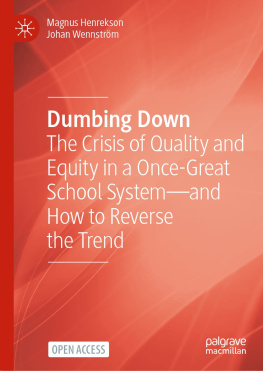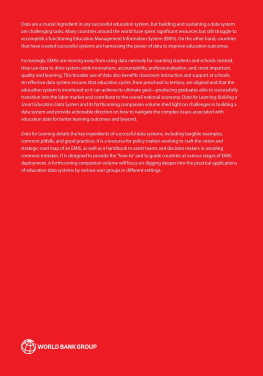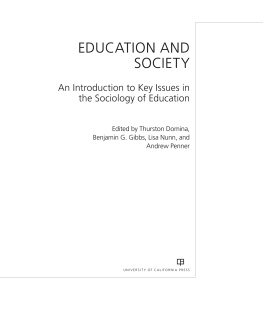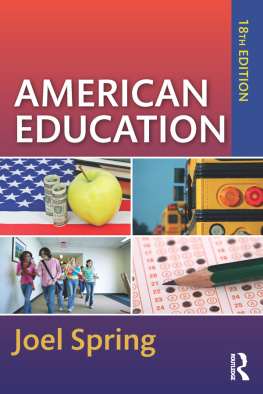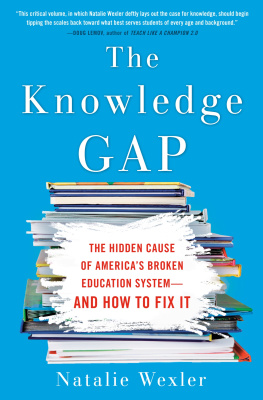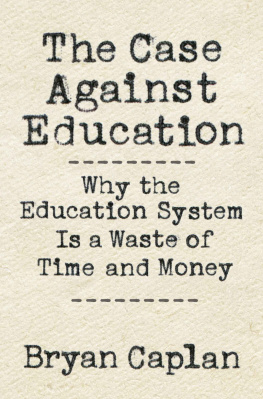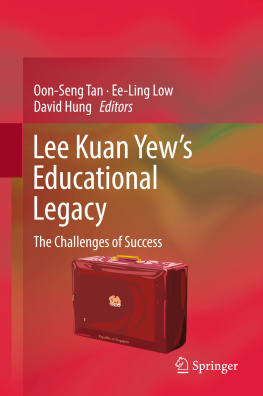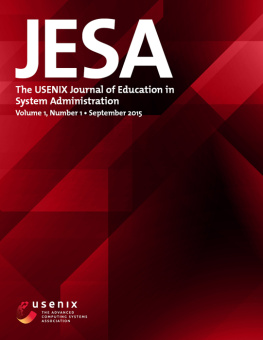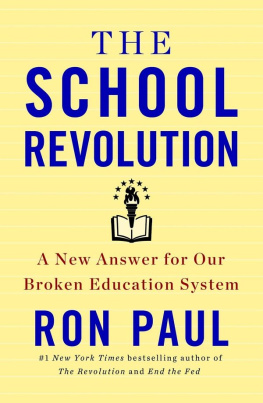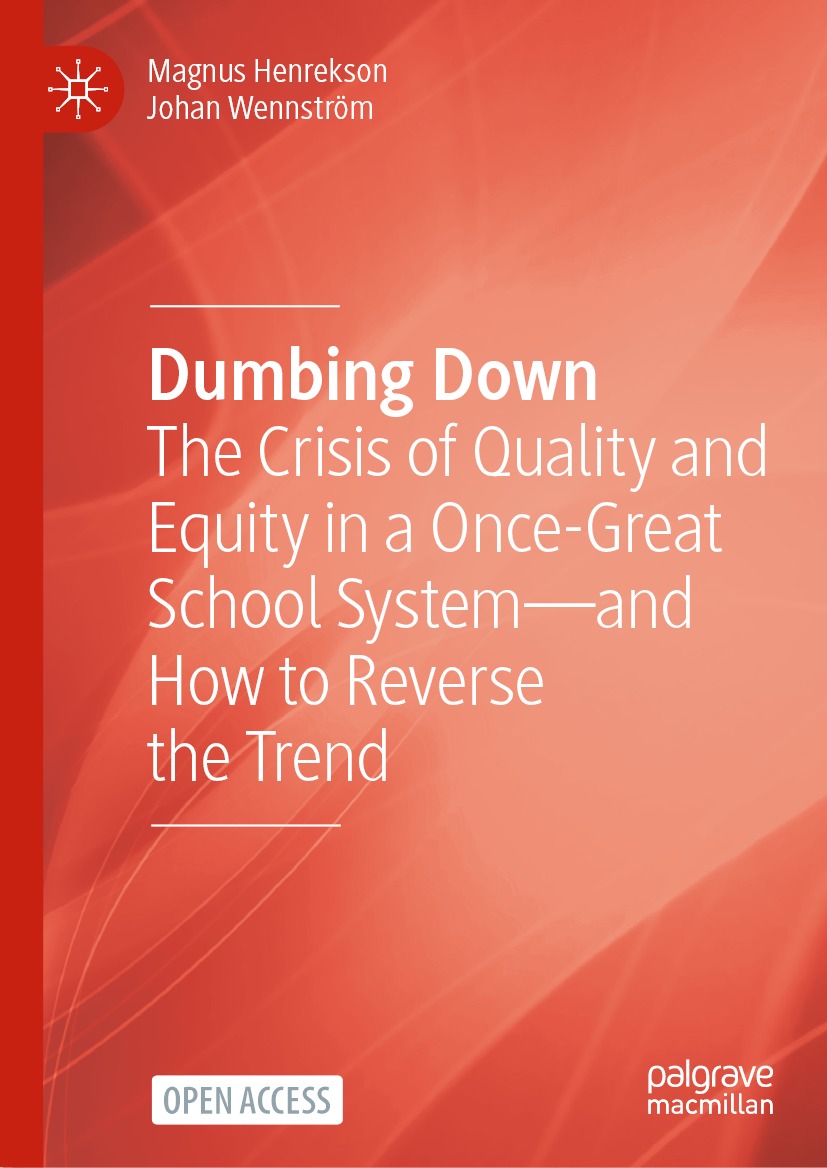Magnus Henrekson and Johan Wennstrm
Dumbing Down
The Crisis of Quality and Equity in a Once-Great School Systemand How to Reverse the Trend
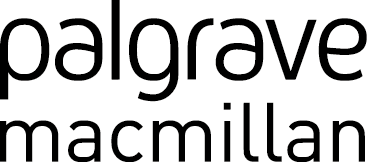
Logo of the publisher
Magnus Henrekson
Research Institute of Industrial Economics, Stockholm, Sweden
Johan Wennstrm
Research Institute of Industrial Economics, Stockholm, Sweden
ISBN 978-3-030-93428-6 e-ISBN 978-3-030-93429-3
https://doi.org/10.1007/978-3-030-93429-3
The Editor(s) (if applicable) and The Author(s) 2022
This book is an open access publication.
Open Access This book is licensed under the terms of the Creative Commons Attribution 4.0 International License ( http://creativecommons.org/licenses/by/4.0/ ), which permits use, sharing, adaptation, distribution and reproduction in any medium or format, as long as you give appropriate credit to the original author(s) and the source, provide a link to the Creative Commons license and indicate if changes were made.
The images or other third party material in this book are included in the book's Creative Commons license, unless indicated otherwise in a credit line to the material. If material is not included in the book's Creative Commons license and your intended use is not permitted by statutory regulation or exceeds the permitted use, you will need to obtain permission directly from the copyright holder.
The use of general descriptive names, registered names, trademarks, service marks, etc. in this publication does not imply, even in the absence of a specific statement, that such names are exempt from the relevant protective laws and regulations and therefore free for general use.
The publisher, the authors and the editors are safe to assume that the advice and information in this book are believed to be true and accurate at the date of publication. Neither the publisher nor the authors or the editors give a warranty, expressed or implied, with respect to the material contained herein or for any errors or omissions that may have been made. The publisher remains neutral with regard to jurisdictional claims in published maps and institutional affiliations.
This Palgrave Macmillan imprint is published by the registered company Springer Nature Switzerland AG
The registered company address is: Gewerbestrasse 11, 6330 Cham, Switzerland
This much-needed new book does a superb job of showing that the post-war, post-modern version of education has been a misfortune for Sweden and for every nation that has adopted these ideas. We now know that this anti-authoritarian child-centered theory has led to miseducation and severe knowledge deficits, and therefore a greater susceptibility to authoritarianism.
E.D. Hirsch, Jr. Professor emeritus of education and humanities, University of Virginia, and author of Why Knowledge Matters
A bold, brilliant, and controversial book, blaming the decline of Swedish schools on the post-truth social constructivism that has guided Swedish school policy since the 1940s in combination with an extreme marketization of Swedish education.
Leif Lewin, Professor emeritus of eloquence and government, Uppsala University, and formerly the Swedish governments special investigator of school policy
This is the book that explains why students entering top university programs in Sweden are increasingly ignorant of fundamental facts of science, unable to construct correct sentences, and helpless in face of basic mathematical problems.
Markus Heilig, Professor of neuropsychiatry, Linkping University, and author of The Thirteenth Step: Addiction in the Age of Brain Science
Henrekson and Wennstrms masterful documentation of the decline of Swedish education provides an important lesson: What ails Western education will not be solved by simply introducing market competition through charter schools or vouchers. The crux of the problem runs much deeper. It lies in foolish ideas about the nature of knowledge and truth.
David C. Rose, Professor of economics, University of Missouri-St. Louis, and author of The Moral Foundation of Economic Behavior and Why Culture Matters Most
Preface
In many Western countries, school systems are in deep crisis. Average results are disappointing, differences across schools and neighborhoods are increasing, and a students family background and gender have become more decisive for how well he or she fares. Under these circumstances, it is hardly surprising that the attractiveness of the teaching profession has fallen, making it increasingly difficult to recruit academically gifted and pedagogically talented teachers.
At the same time, the need for well-educated and knowledgeable citizens is greater than ever. The challenges to be dealt with in the decades to come are huge. The aftermath of the coronavirus pandemic, climate change, an aging population, increasing inequality, and a looming health crisis are a few prime examples. The solutions to these problems, and the advancement of the exceedingly complex and technologically advanced societies that we have created and depend on, require a highly skilled workforce, judicious stewardship, and citizens equipped with effective models and tools to understand and interpret reality.
The good news is that there is now broad consensus that high-quality education is crucial not only because of the need for human capital but also in its own right. The latter aspect is crucial for ensuring that future generations of adults are provided with opportunities to discover their own callings and lead satisfactory lives in productive interaction with their fellow human beings as well as preserve and further the culture they have inherited.
How should high-quality education best be achieved? What are the recipes for success, why have so many countries experienced setbacks, and what should be done to escape the current predicament? Is more money the way forward? More competition and pluralism? More centralization and tighter regulation?
To shed light on and, in our view, provide a large part of the answer to these fundamental questions, we offer an in-depth analysis of Swedens experience. The Swedish school system has gone through extraordinary swings in education policies, regulatory frameworks, and national curricula. These include a radical marketization of primary and secondary schooling that is currently unparalleled in any wealthy Western country.
In this book, we draw heavily on many years of our own research published in peer-reviewed journals, Johans Ph.D. thesis, and Magnuss interdisciplinary project involving a professor of neuroscience (Martin Ingvar), a humanities professor (Inger Enkvist), and a Ph.D. student in the history of ideas and sciences (Ingrid Dunr, formerly Wllgren) as well as numerous popular essays and books in Swedish.
Numerous friends and colleagues, most importantly Gabriel Heller Sahlgren, Henrik Jordahl, Glenn Nielsen, Johan Tralau, and Mark Weiner have helped us develop our thinking on the many themes covered in this book and/or commented on earlier versions of the manuscript. Three anonymous reviewers and our editor at Palgrave Macmillan, Wyndham Hacket Pain, have helped us correct remaining weaknesses.

